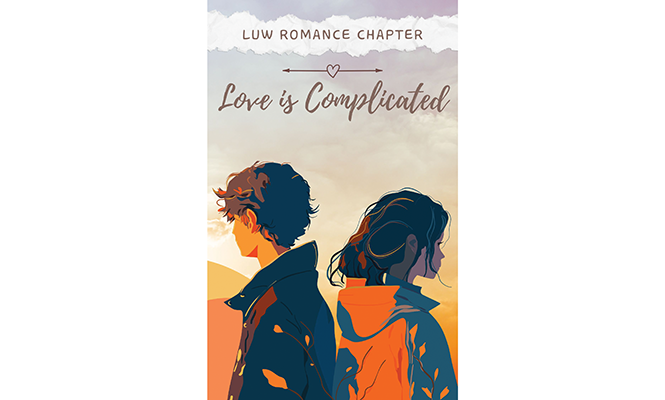The world of romance fiction writers
Authors talk about working in a genre that probably isn't what you expect
By Scott Renshaw @scottrenshawEven if you don't read romance novels, you probably think you know romance novels. From the Harlequin books of the 1980s through the bodice-rippers prominently featuring Fabio (or Fabio-adjacent) cover images, it's a genre that has inspired stigma and stereotyping—of the books themselves, of those who read them, and of those who write them.
Romance fiction is, however, the single most lucrative individual category in adult fiction book sales, accounting for $1.44 billion in revenue in 2022. As demonstrated by the recent Salt Lake City opening of Lovebound Library, a bookstore devoted to romance books, there's a sense of Utah as a thriving marketplace of romance readers. It's also teeming with local writers of romance fiction—all of whom make it clear that the genre is evolving in ways that might challenge preconceptions.
That's not to say that there isn't a basic appeal for many readers and writers in the comfortable familiarity of love stories. Los Angeles-based writer Aminah Mae Safi, who has written four romance novels and several short stories, says that "as a kid, I was always the opposite of the Fred Savage character in The Princess Bride: 'Please be a kissing book.' I think I've always loved love stories; that has been deeply embedded in the way I experience stories."
For some local romance authors, however, the desire to challenge the tropes of the genre was a motivation for writing in that genre. Rachael Bush—who currently serves as president of the League of Utah Writers—recalls that she actually hated the kind of romance novels that she saw her cohort reading when she was younger.
"I had friends who would just voraciously consume the Harlequin romance series," Bush says. "I tried to enjoy them, and I thought they were absolute garbage. Because there was not consent on the page. Of course, when I was trying to read these as a teenager, I didn't understand why I had a problem with it. ... The whole premise of 'she said no, she really means yes,' these alpha males taking things from [the heroine], always made me feel very uneasy. I wanted more from a story than that."
If there's one thing that romance writers seem to agree on, it's that romance fiction has evolved to offer much diversity and complexity—from a greater focus on consent, to increased representation of people of color, to more LGBTQ romance stories. "In recent years, it has become beautifully more inclusive," Safi says. "To be able to say that romance is for everyone—who gets to fall in love, who gets a happy ending. It's not perfect, but it is really heartening to see different kinds of people writing romance; who gets to read this and explore this has opened up."
Keyra K. Allred, co-president of the Romance Chapter of the League of Utah Writers, adds, "Within the league, with the romance chapter in particular, we try and hit those subjects hard. We encourage consent. In our anthologies, we don't accept certain actions taking place within the stories. We need to be a safe space for both writers and readers to come to. While we acknowledge that certain experiences are true, we kind of focus more on consent, on queer voices, on voices of color, indigenous voices. It's been a huge boom in the last few years."
Today's writers also enjoy finding a satisfying balance between indulging in the tropes of the romance genre—the stuff that brings readers in the first place—and offering a twist on those tropes. Safi, who also teaches creative writing, notes, "When I teach this, I teach this in the way that I was taught about music: Great music builds on patterns, and brings an element of surprise. The fact that the form exists allows you to do some really interesting things. The readers expect those rules, so it's not about breaking every rule. It's knowing which rules to break, and why."
Melissa Schack, Romance Chapter co-president with Allred, notes as an example, "I'm fond of genre-bending. My first book is an enemies-to-lovers historical romance, but the heroine is a serial killer. ... I like flipping tropes where the male and female switch."
Despite all the variety in the form, however, writers of romance fiction still face the frequent perception that their work isn't "serious," in much the same way that other kind of art directed largely at women often isn't treated as serious. According to Schack, "People are dismissive about romance writing. I've told people I'm a romance writer, and they wave it off like it isn't important. Yet, I've found some of the most important fiction is the kind for entertainment. People are more comfortable learning life's lessons through fiction."
"I've had this conversation with people who are quote-unquote 'serious writers," Rachael Bush says. "Okay, congratulations for being a serious writer. Does that mean I'm not a serious writer, because I'm writing a story about two people getting together over great odds? They can never explain it."
"I love stories, I love to be immersed in them," Bush adds. "Life is stressful, life is hard, and love is fantastic."
More by Scott Renshaw
-
Film Reviews: New Releases for April 26
Challengers, Boy Kills World, Humane, Alien 45th anniversary
- Apr 25, 2024
-
CHALLENGERS feature movie review
Zendaya centers a romantic triangle with a unique relationship spin
- Apr 24, 2024
-
Film Reviews: New Releases for April 19
The Ministry of Ungentlemanly Warfare, Abigail, The Beast, Hard Miles, Sasquatch Sunset and more
- Apr 19, 2024
- More »
Latest in Arts & Entertainment
Readers also liked…
-
New TV for January 2023
Mayfair Witches, Velma, The Last of Us, Poker Face and more premieres
- Jan 4, 2023




